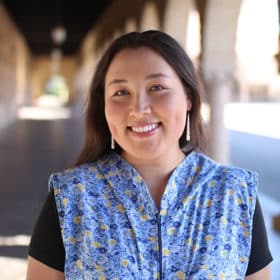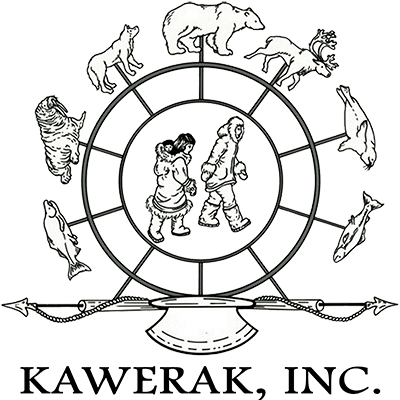What drew you to the Caleb Scholars Program? Do you have a personal story about meeting Caleb, connection to his legacy, or connection to our Program mission?
I was drawn to this program because of the amazing guidance and mentorship it offers. Education is an important tool that can help our communities address the challenges we face, and I hope to use this program to enhance my educational experience. As a young student, I try to learn about how to make effective change and having examples to look up to will be very helpful. It is important to me that I apply for opportunities like this because I also want to leave a legacy like Caleb did.
What does conservation mean to you? How do you engage with conservation at school and/or at home?
To me, conservation means using our traditional ecological knowledge to observe and protect our land, waters, animals, and ecosystems. Conservation should not be used to limit tradition; tradition should be used to enhance conservation. At school, I engage with conservation by speaking up about the environmental challenges we face in the Arctic such as climate change. As a psychology major, I learned that our access to cultural connection has an impact on our mental well-being. When the climate changes our environment, we will not be able to access important customs, traditions, and values that our ancestors and elders worked so hard to protect. As Iñupiaq people, our environment is what will truly sustain us, and our traditional knowledge must be the core of conservation advocacy.
What are your future educational and career goals? What are the top three things that are moving you toward those goals?
I hope to get my master’s degree in Psychology and come home to be a counselor at Kotzebue High School. I also plan to minor in Native American Studies and Public Policy. With that, I would like to be an advocate for both mental health and environmental justice. I became really interested in law school after my first year on campus, so another goal of mine is to study hard for the LSAT. Law school sounds intimidating, but my people and culture are what motivates me. Rural Alaska has a type of beauty that is hard for me to describe to people at Stanford. There is a much deeper relationship between people and survival, a relationship that I continue to learn about every day.
Can you share a memorable story from your past when you felt a relationship to the ocean or land?
I grew up in a dog mushing family. My dad raced the Iditarod, so he trained year-round. Other than scooping poop at three years old, I remember loving to be involved. One winter, my parents decided to take a dog team to our camp, which takes about eight hours one way. My mom and I were in the sled and the sun had set, so all we could see was the dogs — thanks to my dad’s head lamp. We went through a low valley of tundra, and I could see these big lumps on the ground, lots of them. As I sat up on my mom’s lap, she whispered to me, “Tuttu.” They were so close you could reach your hand out of the sled and touch them! The tuttu let us pass through, they were not spooked by us, and we were not spooked by them. It was almost like they recognized us.

